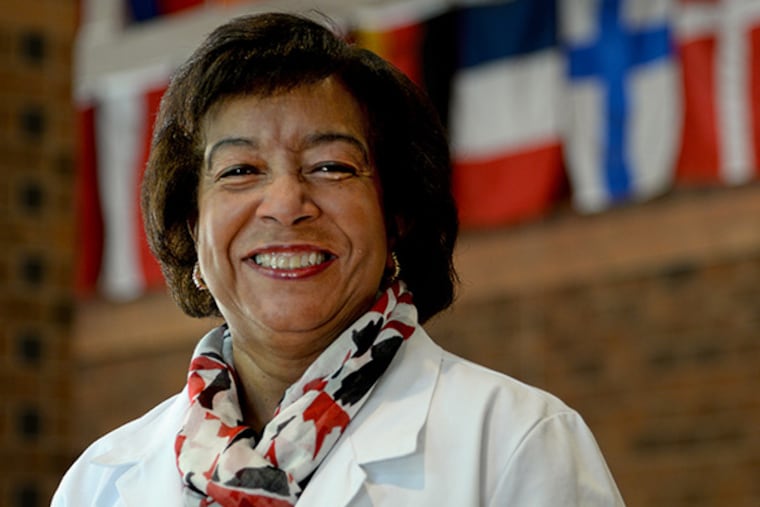Medical society leader targets racial disparities in health care
Edith Mitchell grew up in the "very segregated" farming town of Brownsville, Tenn., at a time when it was unusual for a little girl of any race to dream of becoming a doctor.

Edith Mitchell grew up in the "very segregated" farming town of Brownsville, Tenn., at a time when it was unusual for a little girl of any race to dream of becoming a doctor.
But she says that she decided, at age 3, to go to medical school after being impressed by the African American doctor who made a house call to her ailing great-grandfather.
When she announced her ambition, no one tried to stop her. "You can be whatever you want to be," said her great-grandfather, who died not long after that visit. "You just work hard, focus on what you're doing, and you can be successful."
Mitchell, who is now 67, took the advice to heart, and it worked.
She graduated from high school as valedictorian and never wavered from her med school goal, even though she took a little time off to marry - she met her husband in an English lit class at Tennessee State University - and teach high school math. Midway through medical school, she joined the Air Force. She rose to the rank of brigadier general in the Air National Guard while balancing a busy career as an oncologist.
A new post
Now, the Thomas Jefferson University doctor has added a new challenge. She's the new president of the National Medical Association, a 30,000-member professional organization for African American and other minority physicians. It was founded in 1895, when minority doctors were barred from other professional groups, including the biggie, the American Medical Association. The AMA did not apologize for its history of racial discrimination until 2008, Mitchell pointed out.
She still sees plenty of need for an organization focused on the needs of minority doctors and patients. "At this time, we all know that there is not racial equality in this country, and the lack of racial equality extends into health care," she said.
'Interrelated'
African American patients are more likely than whites to develop many cancers, cardiovascular problems, and other diseases for complex genetic and environmental reasons that are not yet fully understood, and they often face worse treatment outcomes as well.
"We will focus on health policy, access to care, prevention, and therapeutic intervention," Mitchell said. "You can't just focus on one factor that is related to disparities, because they're all interrelated."
At Jefferson, Mitchell is program leader of gastrointestinal oncology and associate director for diversity programs.
She received a $6.7 million Susan G. Komen Foundation grant to study the pathology and biomarkers of breast cancer. She has a particular interest in triple-negative breast cancer, an aggressive form that occurs more frequently in African Americans.
She also has an interest in drug-treatment trials, which historically have not recruited enough minority patients, and worked briefly in the pharmaceutical industry. Unless minorities participate in trials – Mitchell says part of the problem is that researchers don't ask them often enough - doctors won't know how the drugs work in various populations.
The Pennsylvania Breast Cancer Coalition gave her its Potamkin Foundation Prize this year for her breast cancer research. In 2009, she received the American Cancer Society's Cancer Control Award.
A graduate of Air War College, Mitchell said her military experience has helped her be a better strategic planner.
It also contributed the name of her platform during her year as NMA president: True North, Toward Health Care Equity for Minority Populations in the United States of America. True North, she said, is a military term now also used by corporations and nonprofits. It refers to imaginary lines that run along the surface of the earth from the south to north poles. While the lines are perfectly straight, challenges force pole-to-pole travelers to go off course from time to time.
A little relaxing
Staying on course, Mitchell said, requires getting people from diverse fields to work together. She expects to enlist not only medical personnel, but those who work in health policy, insurance, social science, and nutrition in her project.
In her spare time - yes, there is some - the farmer's daughter likes to care for her vegetables and flowers. Her idea of relaxing after a day of work is getting her hands dirty in the garden. She's also a quilter, although she does more buying than sewing these days.
"You have to do things to relax in your life," she said.
215-854-4944
@StaceyABurling